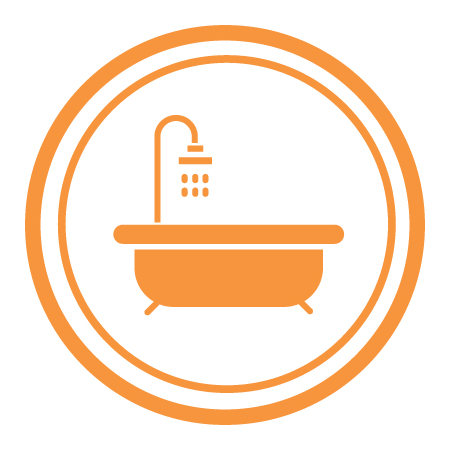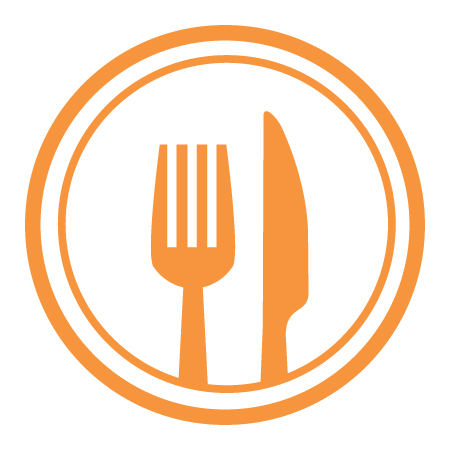The Problem: palm oil, single-use plastics, processed foods
The Solution: refillables, loose produce, DIY
- Fruit and vegetables: buy what is available loose; use, buy or make small bags out of old scraps of fabric or pillowcases to take instead of paper bags. Go to the local market or greengrocers for a wider range of loose options. Grow your own herbs and spinach on the windowsill or in your garden.
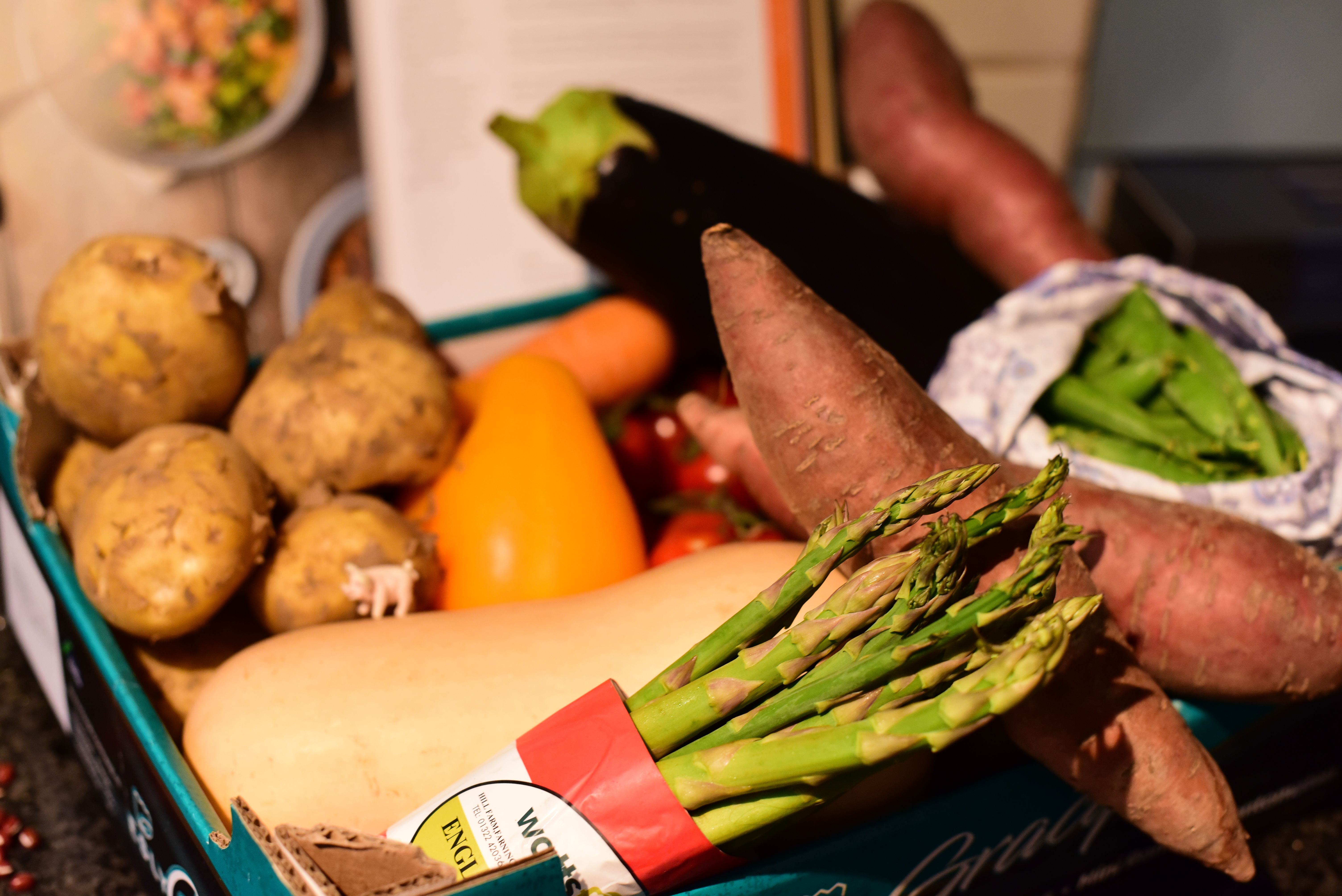
- Meat and fish: take your own containers to the local butchers or fishmongers and some supermarkets who will be happy to weigh their produce into them for you. You may be a trendsetter!
- Dried foods and baking: find a local zero-waste shop, such as Another Weigh, where you can fill up your own jars and containers with dry food products. You can buy in bulk so if it is a bit further than your normal shop, by buying what you need for several weeks you will reduce your number of journeys. These are often very affordable too.
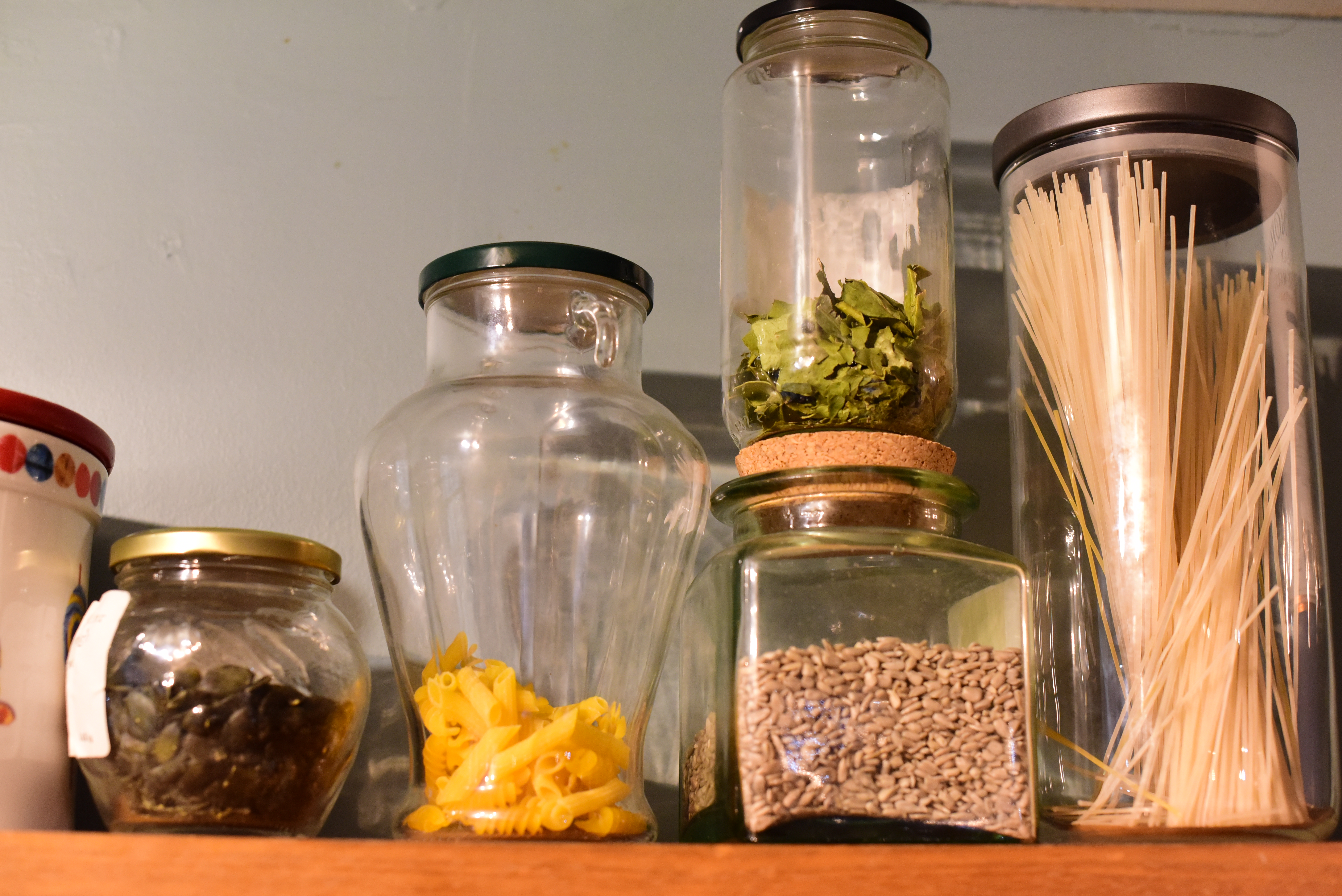
- Snacks: make your own biscuits, cakes, bars and yoghurt using recipes online or in books. This will avoid palm oil and unhealthy ingredients too. Two Farmers crisps come in biodegradable packaging- the first and only brand in the UK. Baking yourself for the week ahead can be fun, especially for families and more affordable too.
- Watch out for tins lined with BPA, a harmful chemical. If they have a white lining, this is often the case. Some brands advertise their tins as BPA free. Make sure to recycle tins and glass jars as these can have an infinite valuable life cycle.
- Cheese, olives, deli: ask your local deli or supermarket deli counter if they can put items into your own container. Bring a bag for loose bread.
- You can make your own yoghurt with little time using a thermos flask. Simply heat up the milk to 100 degrees Celsius, let to cool to 50 degrees and pour into a thermos flask with a tablespoon of existing yoghurt. Leave overnight to thicken. You can then mix it with jam or compote to flavour it.
- Hummus and falafels are easy to make in a food processor. Either buy dried chickpeas from a bulk store and cook them form scratch or look for BPA free tins for a quicker option.
- Buy loose leaf tea as many tea bags contain plastics as an adhesive. You can store it in a jar or an old container. Some brands do use plastic-free teabags- remember to check before composting.
- General: if something is in plastic packaging, try to make use without it and see if you can make it from scratch at home. Freeze things in advance if you have a spare afternoon to bake.
- Label containers with what you need before going shopping- this can serve as your shopping list! Make sure you have plenty of bags and always keep some in your car or pocket.
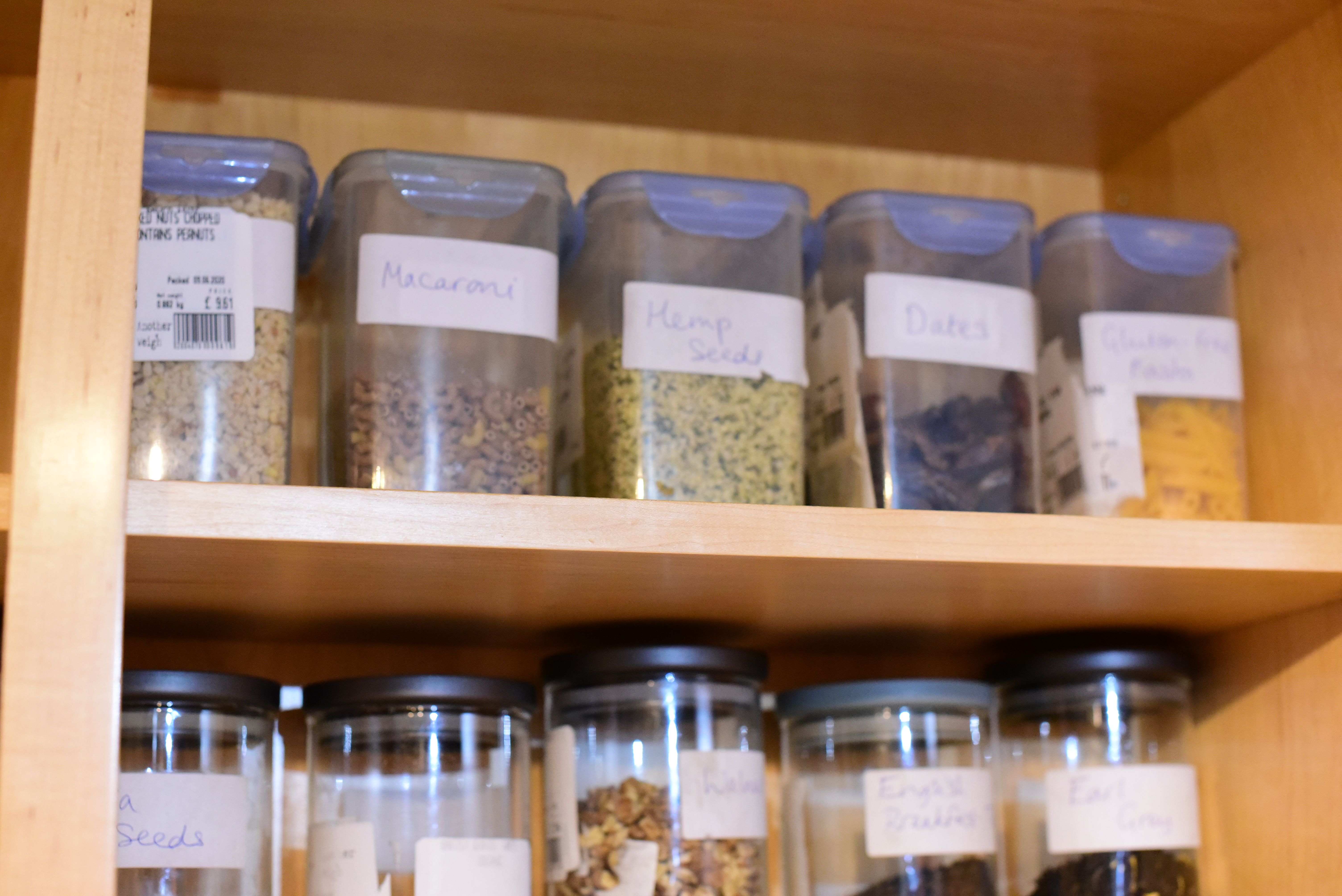
- When going out, make sure you always have a reusable water bottle, coffee cup and any takeaway container you will need. Most cafes or restaurants will put your food in your own container to take away, just be brave and ask nicely!
- It is useful to have a large store of reusable containers. If you already have a lot of Tupperware or other plastic containers, it is better to reuse these instead of throwing them away to replace. However, if you are collecting or buying new containers, try to avoid plastic if you can, as when microwaved or washed in hot water, they can leach harmful chemicals into your food. Boxes made of rice, bamboo, wheat, glass or stainless steel are becoming more common. Although they can be a little pricey at first, they should last a lifetime and will be invaluable. Collecting old jars to reuse is even better!
- See our plastic free leaflet for more
Initial cost
1.8/5
Lifetime savings
1.5/5
Environmental benefits
4.6/5
Health benefits
4.9/5
